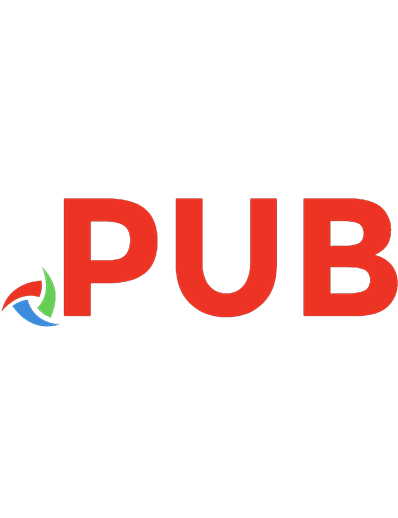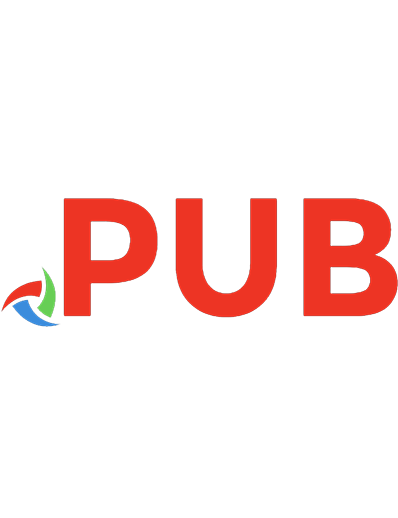Enablers of Organisational Learning, Knowledge Management, and Innovation: Principles, Process, and Practice of Qualitative Data 9789811597923, 9789811597930
This book establishes constructivist, interpretivist, and linguistic approaches based on conventions about the nature of
445 57 3MB
English Pages 308 [320] Year 2021
Table of contents :
Preface
Contents
List of Figures
List of Tables
1 Introduction
1.1 Aim of Research
1.1.1 Objectives
1.2 Definitions
1.3 Assumptions
1.4 Research Question
1.5 Background of Study
1.5.1 Organisational Learning
1.5.2 Knowledge Management
1.5.3 Innovation
1.6 Problem
1.7 Research Gap
1.8 Approach
1.9 Significance of Study
2 Literature Review
2.1 Introduction
2.2 Singapore’s Education System
2.2.1 Private Education Institutes in Singapore
2.2.2 Competitive Advantage of PEIs
2.2.3 Constraints for PEIs
2.3 Organisational Learning
2.3.1 Defining Learning
2.3.2 Definition of OL
2.3.3 Impetus for Development of OL
2.4 Contemporary Perspectives on OL
2.5 Knowledge Management
2.5.1 Impetus for Development of KM
2.5.2 Contemporary Perspectives of KM
2.6 Innovation
2.6.1 Contemporary Perspectives of Innovation
2.7 OL, KM, and Innovation in Geographically Dispersed Individuals and Team Members
2.7.1 OL, KM, and Innovation Mechanisms and Activities in Geographically Dispersed Individuals and Team Members
2.7.2 OL, KM, and Innovation in an Organisation with Emphasis on the Individual
2.7.3 OL, KM, and Innovation in an Organisation with Emphasis on the Team Members
2.7.4 OL, KM, and Innovation in a Geographically Dispersed Organisation with Emphasis on Organisation
2.7.5 Developing Theory and Practice
2.8 Converging Discourses of OL, KM, and Innovation
2.8.1 Social Relationship and Networks Facilitates OL, KM, and Innovation Among Members of a Geographically Dispersed Team
2.8.2 Knowledge Sharing Mechanisms and Activities Facilitates OL, KM, and Innovation Among Members of a Geographically Dispersed Team
2.8.3 Social Cognitive Schema Among Members of a Geographically Dispersed Team Facilitate Emergent Learning, KM, and Innovation
2.8.4 Contemporary Perspectives on OL, KM, and Innovation
2.9 Opportunity for New Perspectives
2.9.1 Calls for Research
2.10 Conclusion
3 Theory and Methodology
3.1 Introduction
3.2 Developing a Research Approach
3.2.1 Epistemology
3.2.2 Theory
3.3 Methodology
3.3.1 Grounded Theory
3.3.2 Ethical Considerations
3.3.3 Limitations
3.3.4 Identifying and Avoiding Bias by Evaluating the Research Process
3.3.5 Credibility and Trustworthiness to Research Investigation
3.3.6 Model and Metaphors
3.3.7 Methodology Development
3.4 Conclusion
4 Methods and Introduction to Findings
4.1 Introduction
4.2 Overview of Method
4.2.1 Collective Learning Experience
4.2.2 Qualitative Research
4.2.3 Population
4.3 Methods
4.3.1 Focus Group Discussion
4.3.2 Semi-structured Interviews
4.3.3 Focus Group Interview
4.3.4 Member Checking
4.3.5 Memo
4.3.6 Personal Journal
4.3.7 Data Collection and Analysis
4.3.8 Data Collection Protocol
4.3.9 On-Site Meeting and Evaluation
4.3.10 Data Substantiation
4.4 Summary of Findings
4.5 Grounded Theory of Learning, Knowledge and Innovation
4.5.1 Learning
4.5.2 Knowledge
4.5.3 Innovation
4.6 Conclusions on Constructions of Knowledge, Learning and Innovation
4.7 Overview of Emerging Categories Forming a Theory
4.7.1 Overview of Categories
4.7.2 Characteristics and Mechanisms of Innovation Theory
4.8 Conclusion
5 Findings: Social Innovation, Architectural Innovation, and Cultural Innovation
5.1 Introduction
5.2 Social Innovation
5.2.1 Social Innovation: Collective Relationships
5.2.2 Social Innovation: Collective Networks
5.3 Social Innovation Conclusion
5.4 Introduction to Findings—Architectural Innovation
5.4.1 Architectural Innovation: Organisational Characteristics
5.4.2 Architectural Innovation: Organisational Structure
5.5 Architectural Innovation Conclusion
5.6 Introduction to Cultural Innovation
5.6.1 Cultural Innovation—Tacit Values
5.6.2 Cultural Innovation: Overt Values
5.7 Conclusion
6 Organizational Learning, Knowledge Management, and Innovation Integrated
6.1 Introduction
6.2 Theory of the Factors Facilitating the Relationship of OL, KM, and Innovation in Geographically Dispersed Individuals and Team Members
6.2.1 Social Relationship and Networks Facilitates OL, KM, and Innovation Among Members of a Geographically Dispersed Team
6.2.2 Knowledge Sharing Mechanisms and Activities Facilitate OL, KM, and Innovation Among Members of a Geographically Dispersed Team
6.2.3 Conclusions: Theory of the Factors Facilitating OL, KM, and Innovation Among Members of a Geographically Dispersed Team
6.3 Conclusion
7 Conclusion
7.1 Introduction
7.2 Theory Exposition
7.3 Contribution of This Study
7.4 Implications for Practice
7.4.1 Social Relationship and Networks Facilitates OL, KM, and Innovation Among Members of Geographically Dispersed Team
7.4.2 Knowledge Sharing Mechanisms and Activities Facilitates OL, KM, and Innovation Among Members of a Geographically Dispersed Team
7.4.3 Social Cognitive Schema Among Members of a Geographically Dispersed Team Facilitate Emergent Learning, KM, and Innovation
7.4.4 Conclusions on Implications for Practice
7.4.5 Meeting Calls for Research
7.5 Limitations of This Study
7.5.1 Implications for Future Research
7.6 Originality and Value
Appendix A Related Research
Appendix B Node Structure: Pattern of Categorisation of Research Data (Sample Extract)
References
Index

![Enablers of Organisational Learning, Knowledge Management, and Innovation: Principles, Process, and Practice of Qualitative Data [1st ed.]
9789811597923, 9789811597930](https://dokumen.pub/img/200x200/enablers-of-organisational-learning-knowledge-management-and-innovation-principles-process-and-practice-of-qualitative-data-1st-ed-9789811597923-9789811597930.jpg)








